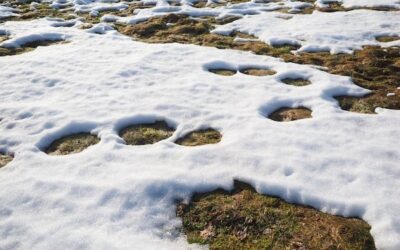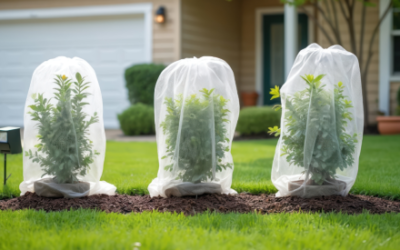Summer can be a challenging time for maintaining a lush, green lawn. With higher
temperatures, increased sun exposure, and occasional drought conditions, it’s essential
to take proactive steps to keep your lawn healthy and vibrant. Here are some summer
lawn maintenance tips to ensure your lawn stays in top condition throughout the hottest
months of the year.
Proper Mowing Techniques
Adjust Mowing Height
During the summer, it’s crucial to adjust your mower to a higher setting. Taller grass
shades the soil, reducing water evaporation and protecting the grass roots from the
intense heat. Aim to keep your grass at least 3 to 4 inches tall to promote deeper root
growth and a healthier lawn.
Regular Mowing Schedule
Stick to a consistent mowing schedule, but avoid cutting more than one-third of the
grass blade length at a time. Cutting too much can stress the grass, making it more
susceptible to heat and drought. Regular mowing encourages healthy growth and helps
prevent weeds from taking over.
Watering Wisely
Early Morning Watering
Water your lawn early in the morning, ideally between 6 and 10 a.m. This allows the
grass to absorb the moisture before the heat of the day causes evaporation. Watering in
the evening can lead to prolonged moisture on the grass, increasing the risk of fungal
diseases.
Deep and Infrequent Watering
Instead of frequent shallow watering, opt for deep and infrequent watering sessions.
This encourages the grass roots to grow deeper into the soil, making them more
resilient to drought conditions. Aim to water your lawn about 1 to 1.5 inches per week,
including rainfall.
Fertilizing
Summer-Appropriate Fertilizer
Choose a slow-release fertilizer specifically formulated for summer use. These
fertilizers provide a steady supply of nutrients without overwhelming the grass,
promoting steady growth and maintaining color. Be mindful of over-fertilizing, as it can
burn the grass and cause more harm than good.
Application Timing
Apply fertilizer during the early morning or late evening when temperatures are cooler.
This reduces the risk of fertilizer burn and ensures that the grass can absorb the
nutrients effectively.
Weed and Pest Control
Regular Inspection
Regularly inspect your lawn for signs of weeds and pests. Early detection is key to
preventing infestations from spreading. Common summer pests include grubs, chinch
bugs, and armyworms, which can cause significant damage if not addressed promptly.
Organic Solutions
Consider using organic or natural weed and pest control solutions. These options are
safer for the environment and your family. Corn gluten meal is an effective natural pre-
emergent herbicide, and beneficial nematodes can help control grub populations.
Aeration
Why Aerate?
Aeration involves perforating the soil with small holes to allow air, water, and nutrients
to penetrate the grass roots. This process helps alleviate soil compaction and promotes
healthier root growth. Summer aeration can be particularly beneficial for lawns that
experience heavy foot traffic.
Timing and Method
For cool-season grasses, aerate in the early summer, while warm-season grasses can
be aerated in late spring to early summer. Use a core aerator for the best results, as it
removes plugs of soil and grass, allowing for better air circulation and nutrient
absorption.
Mulching
Benefits of Mulching
Mulching your lawn helps retain soil moisture, reduce weed growth, and maintain soil
temperature. Use grass clippings or finely shredded leaves as mulch to provide a
natural source of nutrients as they decompose.
Application Tips
Spread a thin layer of mulch evenly across your lawn, being careful not to smother the
grass. Aim for a thickness of about 1/4 to 1/2 inch to achieve the best results without
inhibiting grass growth.
Managing Heat Stress
Signs of Heat Stress
Watch for signs of heat stress in your lawn, such as wilting, discoloration, and dry
patches. Grass under heat stress will often turn a bluish-gray color and may not spring
back when walked on.
Mitigation Strategies
Provide additional water during periods of extreme heat and consider using a lawn tonic
made from water, Epsom salts, and a small amount of dish soap to help the grass retain
moisture. Avoid heavy foot traffic on stressed areas to prevent further damage.
Conclusion
Maintaining a healthy lawn during the summer requires careful attention and consistent
care. By adjusting your mowing practices, watering wisely, fertilizing appropriately, and
keeping an eye on weeds and pests, you can ensure your lawn remains lush and vibrant
throughout the season. Additionally, aeration, mulching, and managing heat stress will
further support your lawn’s health.
At Jack’s Lawn Care & Landscaping, we are dedicated to helping you achieve a beautiful
and healthy lawn all year round. Our expert team is here to provide professional lawn
care services and advice tailored to your specific needs. Contact us today to learn more
about how we can assist you in maintaining your perfect lawn!



